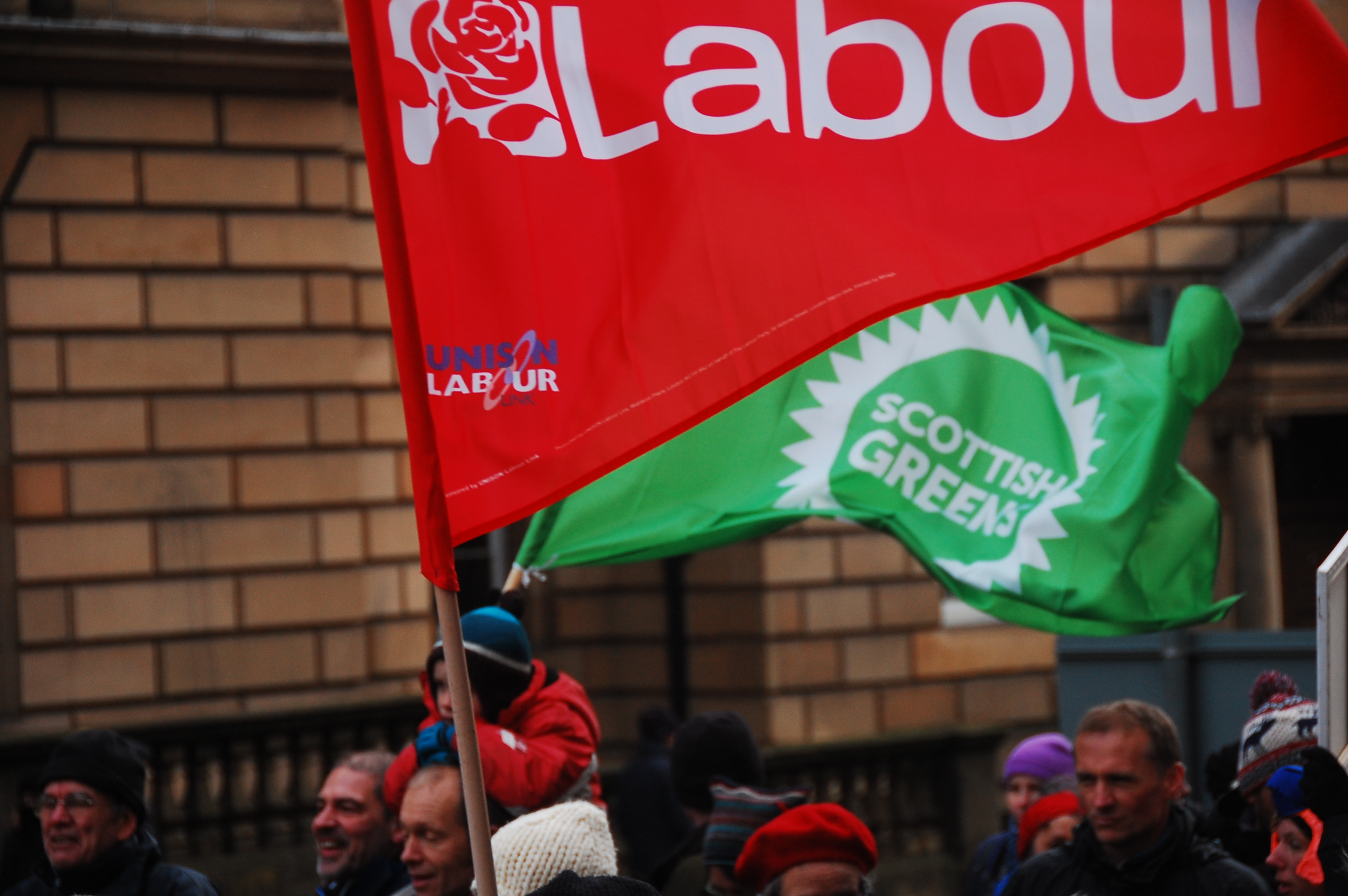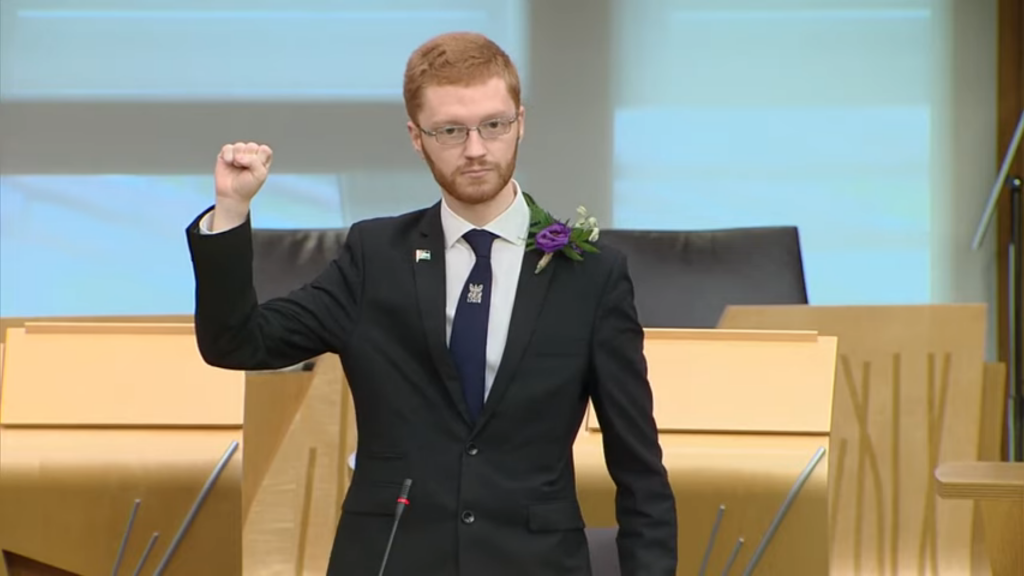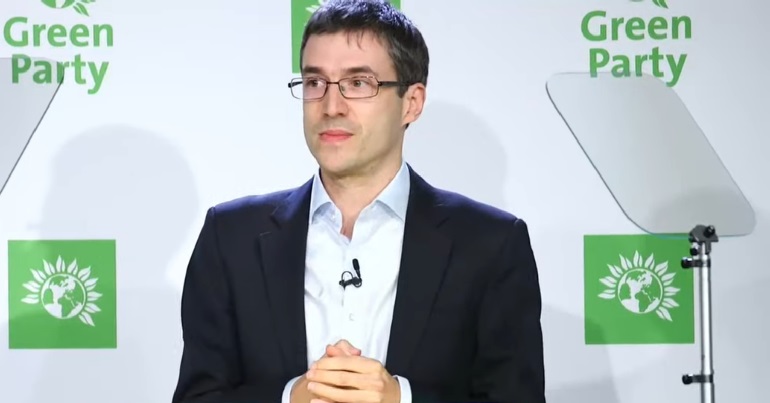A Labour/Green electoral pact would do more harm than good
Dan Johnston argues that a Labour/Green electoral pact would do more harm than good to the Green Party, Labour and the left as a whole.
Recently the Telegraph published a piece saying that Jeremy Corbyn could protect Caroline Lucas in an electoral pact with the Greens in 2020. The article is full of bluster and speculation, and is frankly a transparent attempt by a pro-Conservative newspaper to belittle the election strategy of both Labour and the Green Party before the next election. However, Green Party MP Caroline Lucas has stated on a number of occasions that she is keen to build a progressive alliance based on electoral pacts at the next election, and the Green Party has been debating this tactic for a long time. The prospect of perpetually locking the Conservatives out of power with a left-wing coalition is tantalising, but in practice there are too many flaws with the idea of an electoral pact in 2020.
1) Not All People Think Of Parties As “Left” or “Right”
The idea behind a Labour/Green electoral pact is that “Lefties” will stick together, and if the two parties agree not to stand against each other then voters will choose whichever one of the two parties is standing in their constituency. This idea was spread by bitter Labourites and gloating Conservatives in a variety of articles just after the 2015 General Election, claiming that Green voters had awarded the Conservatives their majority. The problem with this is that many voters don’t think in terms of “left” or “right” at all, and some don’t even choose who they’re going to vote for until they’re standing in the booth in front of their voting slip.
If a Labour voter in Brighton Pavilion enters the voting booth in 2020 faced with a choice between only the Green Party, the Liberal Democrats and the Conservatives, there is absolutely no guarantee they’ll vote for the Greens. The same goes for any other seat Labour might feasibly concede to the Greens in a pact, like Bristol West or Sheffield Central. In fact, knowing that the likely outcome of an election is either a Conservative or Labour government, many people just pick between the two. Without Labour on the ballot paper, swing voters could default to the Conservatives.
In the reverse situation, where the Greens stand down in seats Labour could win, there is no guarantee that Green Voters could tip the balance. Many Greens are anti-establishment protest voters, ex-Liberal Democrats and even some ex-Conservatives. There are no guarantees, no accurate statistics, that suggest “Lefty” electoral pacts will win seats.
2) Exchanging Votes, Candidates and Memberships Reduces Plurality
The Green Party is pro-democracy, pro-freedom of choice and pro-proportional representation. Removing our name from ballot papers, or asking Labour to remove theirs, denies constituents across the country their freedom of choice. How could we, the Green Party, stand up for free votes while asking the electorate to compromise their principles for a long shot at left wing coalition?
Electoral pacts also tend to mix memberships and drag parties’ policies closer together. The Co-operative party is based on the fundamentally left-wing idea of mass public ownership of companies (as co-operatives). People working in co-operation to benefit society as whole – that certainly sounds like a socialist idea to me. Yet the Co-operative party is locked into a constitutional pact with Labour, where they must stand as “Labour Co-operative” candidates in elections, and are expected by convention to obey the Labour whip in the house of commons. For two decades now, since the birth of Tony Blair’s “New Labour”, the Co-operative party have been dragged to the right by their written association with a Thatcherite political party. While Corbyn’s principles seem to fit neatly with the Green agenda, there is a danger that electoral pacts could start to influence individual party policy.
3) Labour Has Nothing To Offer The Greens Except Danger
The Green Party are perfectly capable of winning seats on their own, and took Brighton Pavilion by a massive majority of 14.6% (7,967 votes). Labour has no reason to offer the Green Party any other concessions across the country, and indeed the only movement we’ve seen so far from Corbyn is that he may or may not protect Caroline Lucas’ seat in 2020. Ultimately what we could end up with is a very one-sided pact where Labour agrees to let us stand alone in Brighton Pavilion, a seat we have already won twice in a row, while the Greens agree to stand down in hundreds of marginal seats across the country where we are supposedly draining Labour votes. It hardly sounds like a fair exchange, even if you believe it will lead to left-wing government.
A greater danger is that Labour standing down in Brighton Pavilion could lead the Conservatives to victory there. The Tories came third place in Brighton Pavilion in 2015 with 22.8% of the vote. UKIP took 5% and Labour took 27.3%. It’s perfectly feasible that swing voters from Labour and UKIP could vote tactically to block out the Greens if they don’t have a Labour candidate on their voting slip at the next election.
A pact also weakens the image of both Labour and the Greens in the media spotlight. While the desire for electoral pacts is a horrible, horrible quirk of our FPTP voting system, the pro-Conservative press are bound to spin a Labour/Green pact as a sign of weakness from both of our parties. A left-wing government won by fiddling with seats could foster resentment from voters.
4) Tactical Decisions Aren’t Reliant On Written Agreements
We don’t need to have an official pact with Labour, or any other party, to deliver election victory in 2020. While an unspoken agreement may not allow us to demand that a Labour government implement some key policies for us, we can still lock out the pro-austerity Conservatives and deliver a Labour government without weakening our own party image.
In constituencies where we know we definitely can’t win, we can make our own decision to divert campaign resources to other more important constituencies. We don’t need a contract with Corbyn looming over our heads to make decisions about which seats we will and will not stand in. Green supporters who know how to vote tactically, and have the will to do so, can do that without party leadership telling them to do it.
2020 is a long way off, we have plenty of time to make decisions on our election strategy. Let’s not rush into something we may regret when the polls close in four years’ time.
This article was originally published on Dan Johnston’s personal blog here.
PS. We hope you enjoyed this article. Bright Green has got big plans for the future to publish many more articles like this. You can help make that happen. Please donate to Bright Green now.





The comments suggest that some Tories might be green. That might well be the case. And certainly labour policy is not explicitly green.
However, the Green Party has a strong “equality” ethos- the definition of left wing. So if labour is left wing then these two parties share common ground. Under the Tories (or, rather, the neoliberalism that they actually are) our society has become increasingly and extremely unequal. Thus, labour and the greens share common ground untrodden by the Right.
We should look to our objectives in determining whether “pacts” are A Good Thing. A more equal society and a more sustainable economy are objectives that transcend the party political. Thus, our question might be: “would this particular alliance deliver shared objectives?”
I agree with some of the comments, including that of Richard Jones, that there should be local agreement based on local circumstances, with an overall mandate from the national parties to do so, should it be considered that shared objectives be more likely to be met
I suspect that Corbyn’s ‘greening’ of Labour policies is more about tactics than any genuine desire for green-ish politics. Just half of the UK’s green votes could potentially hand Labour the next election. Yes there is much in Corbynism for us to like but it falls way short of what we are striving for. After seemingly backing down from ‘clean? Coal’, a recent interview in the Morning Star over xmas/new year restated his interest in this!
Any statement by Corbyn that hints at Labour not standing against CL in Bton pavilion is designed to soften Green voters across the country and the decision will be made by Brighton Labour Party, a distinctly right leaning entity that loathes us as can be seen by their vicious local and constituency campaigns. Labour in Brighton have often been literally fighting for their life against the Greens here.
Caroline has not called for an official pact between leaders but a soft approach between progressive candidates. Nancy Platts in Brighton Kemptown, a decent left Labour candidate lost by less than 700 votes to our Davy Jones who gained over 3000 votes. It was sussex Labour grandee Lord Bassam who put the block on any deal before the 2015 election so i am told.
We should instead emphasise the need to destroy the Tories majority by ‘soft pedalling’ our campaign in seats where we won’t win and a decent Labour candidate can. Our vote for what you believe in stnce was admirable and gave us a hugely increased overall vote share but, as the polls were so wrong, the UK can no longer afford this.
Peter Kyle is an example of a staunch Blairite Labour MP but, would we really want him replaced by a Tory?
I would not expect any concessions from Labour but perhaps other non-aligned political groups such as the Peoples assembly might be better at transmiting the message that tactical voting is necessary until we achieve electoral reform?
Just publicly talking about pacts is always a bad strategy, and I’m surprised that Caroline is doing it. It says to Green members and potential Green voters that we have no real differences with Labour. Therefore they will not see the point in the Green Party. We need to be talking about our unique selling point – the need to transition to a sustainable, post-growth economy.
The need for electoral reform ,not to have a Conservative government in 2020 & that it would be better to have a Labour-led government than a Tory one are probably the beliefs of most if not all Greens. But the question of how deliverable and how desirable a pre-electoral pact with Labour would be is in serious need of evaluation.
Dan rightly speculates on the likelihood of significant numbers of voters who would otherwise vote Labour or Green not switching to the other party if there isn’t a Labour or Green candidate.
A bigger stumbling block , however, is likely to occur way beforehand. This bigger ,crucial and probably lethal stumbling block is Labour Party tribalism. Labour whether right-wing neo-Liberal , Social Democrat , hard left or whatever has a reactionary party culture which overwhelmingly rejects co-operation with other parties. (There are exceptions: Labour Party Compass is likely to be one.)
You can see this tribalism being voiced by Peter Kyle , Labour MP for Hove, in the very recent Telegraph article when the best that he can say is: “I will continue to work constructively with Caroline for Brighton, but what we can’t do is try to stitch up elections together. A back-room deal is a turn-off for voters.” He also says is that the only agreement that voters would accept as “fair” would be if Ms Lucas quit the Green party and joined Labour as a defector. This is code for the only agreement acceptable to Labour members like Kyle is for Caroline to join the Labour Party.
This doesn’t mean we Greens should not explore and assess pacts. But we shouldn’t indulge in wishful thinking about their prospects.
Finally , to say that “Corbyn’s principles seem to fit neatly with the Green agenda” is way off. We overlap in many respects as regards social justice but Greens and Labour diverge on economics and the environment:sustainablity versus growth. And that is far from all the differences but it is critical.
While I’m thoroughly up for doing anything necessary to get the Tories out, and it’s true we can probably only win in at most five seats in 2020, it’s up to the local constituency parties to decide whether to stand a candidate or not; that’s how the Green party makes decisions and it’s why I’m a member of the Greens and not Labour. These decisions should depend on the individual circumstances of each constituency; whether it’s a safe Labour or swing seat, what the Labour candidate is like. As for any unofficial resource/extra campaigning decisions made by head office, well, surely it would be better to keep the Tories in the dark about what we’re doing, and base any decisions on “accurate statistics, that suggest “Lefty” electoral pacts will win seats” – which will have to be paid for.
you make good points here,the greens should not enter electoral pacts like this,lets develop our own left/green policies,and campaign hard for them.jpj
Some good points. But in the near future isn’t this academic for parliamentary elections? About the only Green target seat where Labour might conceivably be interested in Green support would be St Ives. And there, the combined vote of Greens and Labour is nowhere near the winning Tories. Isn’t the much more interesting area local government? Even in true blue areas such as shire counties, there is disaffection over perpetual Tory rule. Discouraged challengers are often prepared to think about compromising to achieve change. Of course, there are lots of ways in which this could be done. It would be a real pity not to pursue the possibilities though.
I’m no fan of voting for unaccountable strangers with flags. But with 1st past the post the good ones need to find each other and step as side.